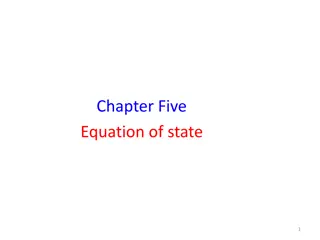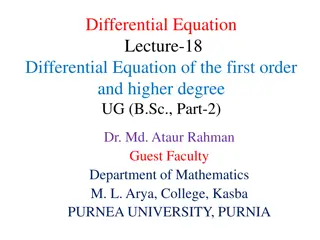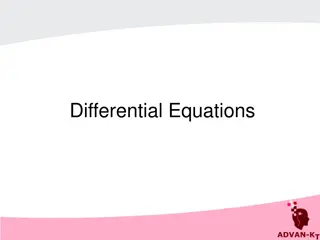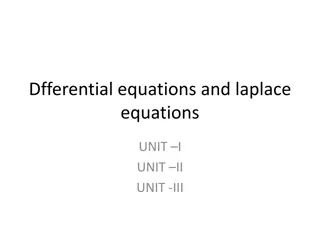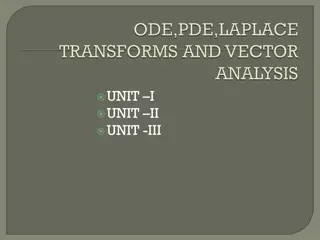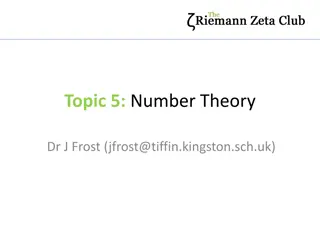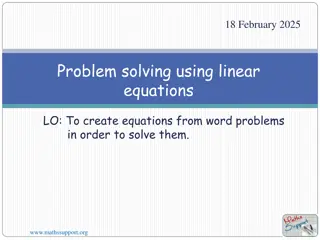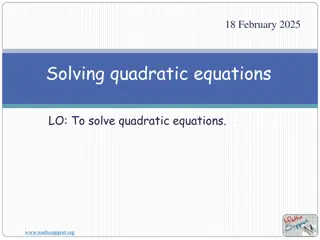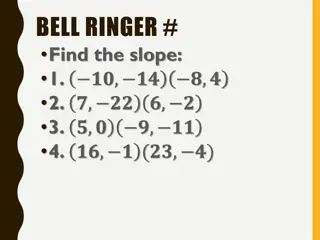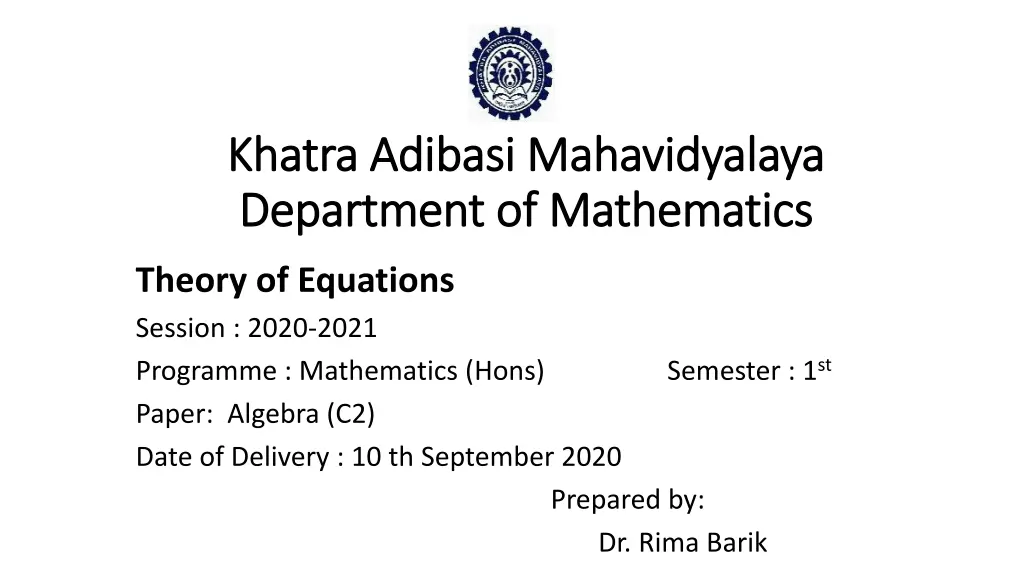
Relation Between Roots and Coefficients in Algebraic Equations
Explore the fundamental theorem of algebra and learn about the relation between roots and coefficients in different types of algebraic equations, including quadratic, cubic, and biquadratic equations. Understand how the roots and coefficients are interconnected in algebra, providing insight into solving mathematical problems effectively.
Download Presentation

Please find below an Image/Link to download the presentation.
The content on the website is provided AS IS for your information and personal use only. It may not be sold, licensed, or shared on other websites without obtaining consent from the author. If you encounter any issues during the download, it is possible that the publisher has removed the file from their server.
You are allowed to download the files provided on this website for personal or commercial use, subject to the condition that they are used lawfully. All files are the property of their respective owners.
The content on the website is provided AS IS for your information and personal use only. It may not be sold, licensed, or shared on other websites without obtaining consent from the author.
E N D
Presentation Transcript
Khatra Khatra Adibasi Adibasi Mahavidyalaya Department of Mathematics Department of Mathematics Mahavidyalaya Theory of Equations Session : 2020-2021 Programme : Mathematics (Hons) Semester : 1st Paper: Algebra (C2) Date of Delivery : 10 th September 2020 Prepared by: Dr. Rima Barik
Fundamental theorem of Algebra Fundamental theorem of Algebra Every equation has a solution, real or complex. Once a problem is encountered, one only has to formulate an equation, using the conditions given in the problem. The solution is assured. But the implementation of the solution may or may not be possible, as the solution may not be real.
Some Basic Theorems : Some Basic Theorems : If a is a root of an equation f(x) = 0, then (x-a) is a factor of f(x). If f(x) = 0 be an equation and a , b be two real numbers, such that f(a) f(b) < 0 , then f(x) = 0 has at least one root between a and b. Every algebraic equation of degree n has exactly n roots. In an algebraic equation with rational coefficients, irrational roots occur in conjugate pairs. In an algebraic equation with real coefficients, complex roots occur in conjugate pairs.
Relation between roots and coefficients of a Relation between roots and coefficients of a quadratic equation: quadratic equation: If ??2+ ?? + ? = 0 is an equation whose roots are ? and ? then : ? + ? = ? ? ?? = ? ?
Relation between roots and coefficients of a Relation between roots and coefficients of a cubic equation: cubic equation: If ??3+ ??2+ ?? + ? = 0 is an equation whose roots are ?,? and ? then : ? + ? + ? = ? ? ? ? ?? + ?? + ?? = ??? = ? ?
Relation between roots and coefficients of a Relation between roots and coefficients of a biquadratic equation: biquadratic equation: If ??4+ ??3+ ??2+ ?? + ? = 0 is an equation whose roots are ?,?,?and ? then : ? + ? + ? + ? = ? ? ? ? ??? + ??? + ??? + ??? = ??+ ?? + ?? + ?? + ?? + ?? = ? ? ? ? ???? =
General Form of the Relation: General Form of the Relation: Let ?1,?2, , ??be the n roots of the equation ????+ ?? 1?? 1+ + ?1x + ?0= 0 , then ??= ( 1)?? 1 ?? ????= ( 1)2?? 2 ?? ??????= ( 1)3?? 3 ?? .. ?1?2 ??= ( 1)??0 ?? where ? ? where ? ? k I


